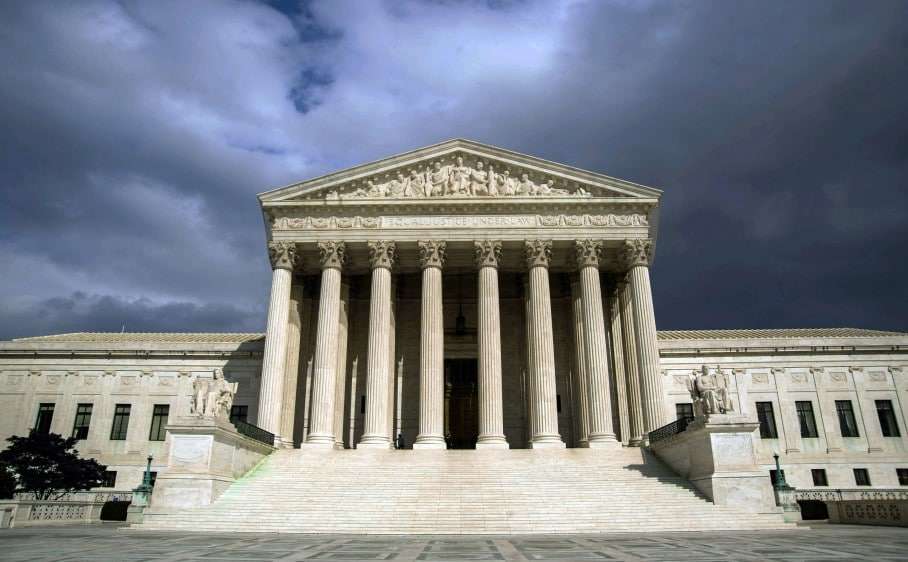The Volokh Conspiracy
Mostly law professors | Sometimes contrarian | Often libertarian | Always independent
How the IRS repeatedly rewrites Obamacare tax credit provisions

The plaintiffs in King v. Burwell argue that an IRS regulation unlawfully extends tax credit eligibility beyond what is expressly authorized under Section 1401 of the Patient Protection and Affordable Care Act (PPACA). It appears that this sort of administrative rewrite of the PPACA may be more the rule than the exception, as there are at least two other instances of the IRS rewriting the PPACA's tax credit eligibility requirements.
Section 1401 (which creates Section 36B of the Internal Revenue Code) authorizes tax credits for the purchase of qualifying health insurance in an exchange "established by the State under Section 1311" of the Act. The IRS rule also authorizes tax credits for the purchase of health insurance in an exchange established by the federal government. The Supreme Court will rule on this challenge later this year.
In a series of posts at "Notice & Comment," the blog of the Yale Journal on Regulation, Professor Andy Grewal documents two additional cases in which the IRS has rewritten the PPACA's tax credit eligibility requirements so as to expand eligibility beyond what Congress authorized. Combined with other instances of the IRS and HHS disregarding the PPACA's plain text, it appears the federal government has little regard for what the PPACA actually says.
In his first two posts, Professor Grewall explains how IRS regulations disregard the statutory text so as to extend tax credit eligibility to some low-income aliens not lawfully residing in the U.S. In this way, the IRS regulation "casts a wider net than the statute" by expanding the number of people eligible for tax credits. Yet the IRS never provided any rationale for this change. Indeed, if one had just read the IRS explanation for what its regulations accomplish - as opposed to the regulations themselves - one would not even be aware of what the IRS did.
In a second pair of posts, Professor Grewal explains how the IRS also issued regulations effectively disregarding the income requirements for tax credit eligibility. Under the PPACA, individuals are only eligibile for tax credits if they earn between 100 and 400 percent of the poverty line. Under the IRS regulations, however, the 100 percent threshold is disregarded in some instances. Writes Grewal:
Under the regulation, a person becomes an "applicable taxpayer" and therefore eligible for ACA tax credit if she gets health insurance on an exchange, the exchange estimates that her income falls with the 100-400 percent range, and she in fact gets advance payments, even though her annual household income is less than the 100 percent amount required by law. Being an applicable taxpayer carries significant consequences and can cause one's employer to face severe penalties under Section 4980H. . . .
It's easy to come up with a policy supporting this re-write of Section 36B, but I can't identify any statutory authority for doing so. Policy-wise, the regulation addresses a problem related to imperfections in the Exchange regime, under which differences between estimated household income and actual household income can lead to tax repayments. But authority-wise, Congress plainly and unambiguously limited the premium tax credit to persons who come within the 100 and 400 range; the Treasury lacks the authority to grant credits to persons outside that range.
Not only does this regulation flout the relevant statutory text, it also creates an incentive for taxpayers to misrepresent their income so as to receive tax credits for which they would not otherwise be eligible. Writes Grewal, "the regulation rewards those who inflate their income at enrollment time and offers no benefits for the cautious taxpayer who wants to claim a credit only at the end of the year."
As with the regulatory change expanding tax credit eligibility to some unlawful aliens, the IRS cited no authority for making this change. It did, however, provide an interesting justification. As Grewal explains,
The Preamble to the regulation cites no statutory authority for re-writing Section 36B. It says only that the IRS is intending to "clarify" the statute, but I'm not sure what's unclear about the 100-400 percent range. More confusingly, the IRS rejects extending the regulation to persons who end up above the 400 range, noting that that interpretation is "contrary to the language of Section 36B." Apparently, it's ambiguous whether 50 is less than 100, but unambiguous that 450 is greater than 400.
These IRS rewrites have potential consequences beyond the extension of tax credits beyond what Congress authorized. As with the tax credit regulation at issue in King, the latter of these changes has the potential to expose employers to penalties that are not authorized by the text of the PPACA. Put more plainly, by expanding eligibility for tax credits the IRS is also expanding employer exposure to the employer mandate and its associated penalties. Will this produce additional litigation? Who knows. Whether or not it does, it is further evidence that the IRS is intent on implementing the law some wish Congress enacted as opposed to what was actually signed into law.
These administrative rewrites of plain statutory language should be troubling whether or not one supports the PPACA. As Professor Grewal concludes:
A complex regime cannot be fairly administered when the words of the law are routinely flouted, especially when the granting of benefits to one group potentially triggers penalties for others.
Fairly administering this law requires implementing it as written, and seeking legislative revision of those provisions now understood to be unworkable or unwise. Congress has already made over one dozen changes to the PPACA that have been signed into law, and there is no reason it could not make others. If more changes are necessary (and I suspect most think they are), it is a job for Congress, not the IRS.


Show Comments (0)